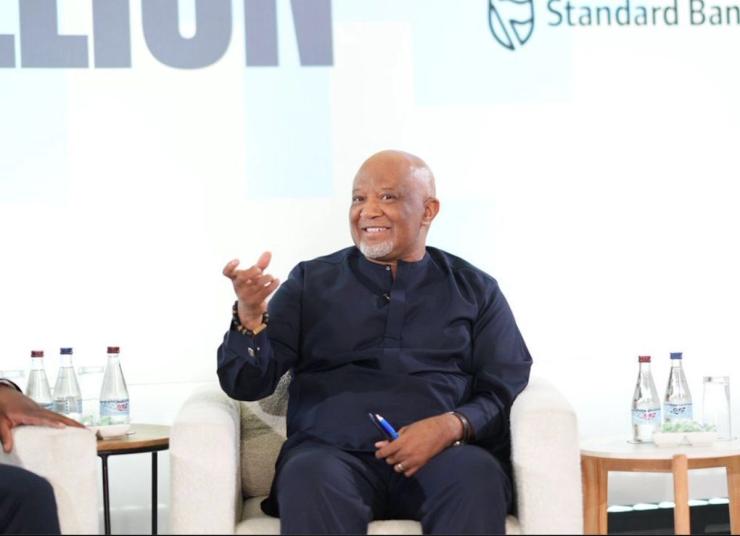The News
South Africa should diversify its commercial ties to protect itself from the fallout of a global transition away from multilateralism and the “weaponization of trade,” the country’s special envoy told Semafor. Mcebisi Jonas, a former deputy finance minister and current chair of telecoms company MTN, also said Africa’s largest economy must shift to a “free trade approach,” away from its current focus on investment treaties.
Speaking at Semafor’s Next 3 Billion event in Johannesburg, he said South Africa must strengthen trade with the US and EU, “but also begin to look at markets where we could be stronger,” such as Canada and “parts of the east.”
The US this year imposed a 30% tariff on South African imports over laws the Trump administration claims unjustly discriminate against white South Africans. President Cyril Ramaphosa said the move — which could cost South Africa up to 100,000 jobs — was a “wake up call.” Washington’s increasingly tense relationship with Pretoria has led the US to boycott the G20 summit, which will take place in Johannesburg this weekend.
In this article:
Sam’s view
Jonas’ call for a structural reset of South Africa’s economic architecture is not just provocative; it breaks sharply from the political class’s instinctive caution in the face of shifting geopolitical tectonic plates. Where many in Pretoria have defaulted to rhetoric or nostalgia, Jonas is openly arguing that South Africa must rebuild its trade doctrine for a harsher, multipolar world.
This is a challenge to decades of defensive industrial-policy instinct. Jonas is effectively saying that South Africa cannot remain trapped in a 1990s framework while the global system around it fragments. His argument demands a rebuilding of state capability — the negotiating depth, regulatory agility, and export-led competitiveness that underpin a credible modern trade regime.
He ties this directly to the country’s chronic low-growth trap: “Growth depends on a strong and dynamic private sector… but for that to happen you also need a strong and dynamic state.” It is a deliberately unifying message at a time when South Africa’s political debate often treats the state and the private sector as adversaries rather than partners in recovery.
Jonas’ warning lands at a moment when geopolitics is no longer abstract for South Africa. The White House’s decision to shun the G20 summit is a pointed reminder that diplomatic signals now come through absence as much as dialogue. Months earlier, the Trump administration’s 30% tariff on South African imports arrived without transparent and predictable dispute-settlement channels — a unilateral shock that exposed Pretoria’s vulnerability.
Jonas’ remedy is diversification, not retreat. And the subtext is clear: South Africa cannot navigate a weaponized, transactional global economy with a narrow set of partners and an outdated policy toolkit. Jonas is one of the first senior figures to state plainly that the world has changed — and South Africa must change with it.
Notable
- The overhaul of US tariff policy has been a “wake-up call” for South Africa, driving it to strengthen trade with the rest of the world, Ramaphosa said in September.

